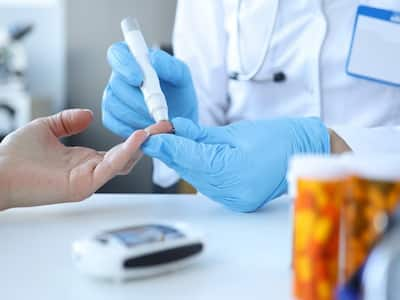
Dr Navneet Agrawal shares some lifestyle changes that pre-diabetics can adopt to reverse and manage the disease.
In the world that we live in, with hectic lifestyles, easily accessible fast-food and sedentary habits, diabetes has become a global epidemic. India has showcased an overall weighted prevalence of diabetes at 11.4% and prediabetes at 15.3%. Given the prevailing circumstances, it becomes imperative for individuals to adopt a comprehensive strategy to mitigate the onset and progression of diabetes. Understanding what physiological changes accompany prediabetes is paramount before making any significant changes. Prediabetes manifests as heightened glucose levels, signifying an increased susceptibility to developing type 2 diabetes. Typically, prediabetes coincides with insulin resistance, wherein the pancreas secretes insulin, yet the cells resist its effects, leading to inefficient glucose uptake.
Consequently
This glucose stays in the bloodstream, elevating and metabolising it for energy production. However, amidst the daunting statistics and medical jargon lies a story of hope and resilience. The power to manage diabetes effectively lies in medication and the transformative potential of lifestyle changes. Dr Navneet Agrawal, Chief Clinical Officer, BeatOshares that one can readily adopt the following changes to reverse and manage prediabetes:
- Thoughtful Food Selection: The most pivotal lifestyle change one must make in this journey to manage and reverse prediabetes is the mindful selection of foods. Before putting things on your plate, it is imperative to consider foods’ glycemic indices (GIs), the measure by which foods can spike blood sugar levels. One must pivot dietary needs to consuming whole foods, including fruits, vegetables, whole grains, lean proteins, and fibre-rich food. It would help if you stayed clear of nutritionally deficient food and ones with high glycemic indices such as sugar, refined carbohydrates or food rich in sodium and nitrates.
- Regular Exercise: Any consistent form of exercise ensures optimal cardiovascular activity, which in turn helps reduce the risk of high blood sugar. Exercise also releases endorphins, known as “feel-good” hormones, which contribute to a heightened sense of well-being and aid in mitigating stress, anxiety, and depression.
- Weight Management: Excess body weight, especially around the waistline, leads to the accumulation of what is known as adipose tissue, which disrupts the balance of the insulin signalling pathways in your body. Maintaining a healthy weight can significantly reduce this accumulation and the risk of developing diabetes.
- Stress Management: Stress extensively influences our physiologies, often triggering undesirable fluctuations in blood glucose levels, practising meditation and yoga, and engaging in relaxing hobbies that activate the body’s relaxation response. They also help you connect with the parasympathetic nervous system, maintaining stable glucose levels in the bloodstream.
When Managing Diabetes
A supportive community can serve as an uplifting force. By incorporating these small yet impactful changes with the support and guidance of loved ones and healthcare professionals, we can easily triumph over the challenges of living with diabetes.
READ RELATED: 8 Effective Stress Management Techniques For A Healthy Mind And Body
Total Wellness is now just a click away.
Follow us on
Don’t Miss Out on the Latest Updates.
Subscribe to Our Newsletter Today!
window.addEventListener(‘load’, (event) => {
$(‘#commentbtn’).on(“click”,function(){
(function(d, s, id) { var js, fjs = d.getElementsByTagName(s)[0]; if (d.getElementById(id)) return; js = d.createElement(s); js.id = id; js.src = “//connect.facebook.net/en_US/sdk.js#xfbml=1&version=v2.3”; fjs.parentNode.insertBefore(js, fjs);}(document, ‘script’, ‘facebook-jssdk’));
$(“.cmntbox”).toggle();
});
});








